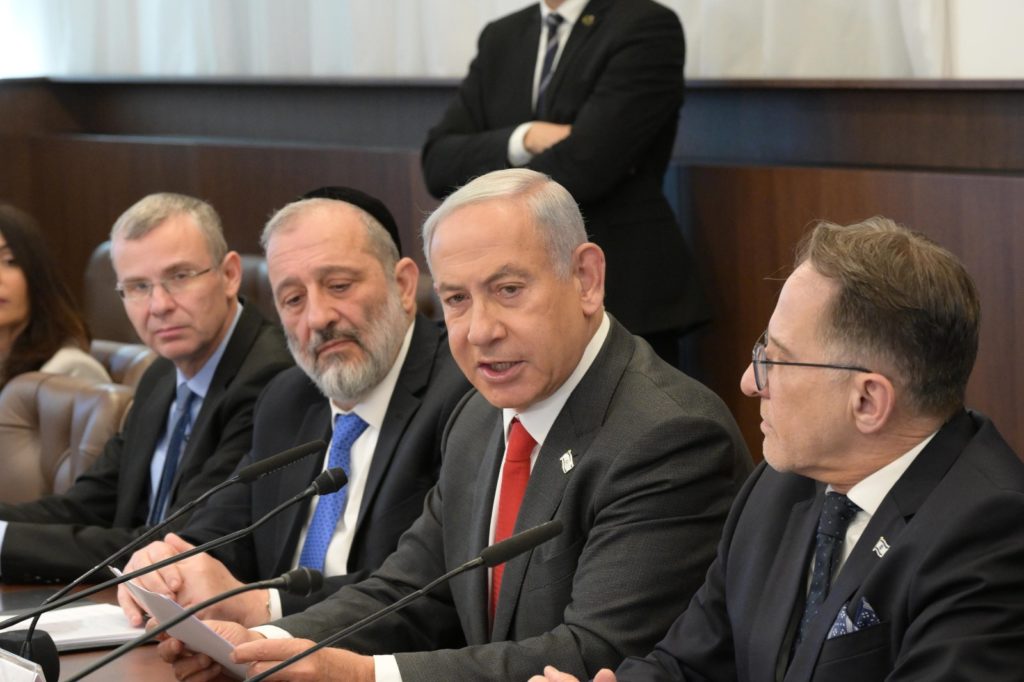
Israel unveiled a range of sanctions on the Palestinian Authority (PA) and its officials on Friday—including more than $39 million in penalties—in response to a move by the Palestinians to drag Israel before the International Court of Justice (ICJ). Israel said this is more than just a diplomatic back-and-forth, calling the PA move a “decision to wage political and legal war against the State of Israel.”
“The current government will not sit idly by in the face of this war and will respond as necessary,” said a statement from the office of Prime Minister Benjamin Netanyahu.
The announced steps include shifting $39.6 million (139 million shekels) to the families of Israeli victims of Palestinian terrorism from tax funds previously due to the PA. Israel further deducted money from the PA funds to offset “payments made by the PA to terrorists and their families in 2022,” referencing the Palestinian’s notorious financial program also known as “pay-to-slay”.
A report from The Times of Israel added background to the statement on the Israeli sanctions, noting they come after the Palestinians pushed for and obtained a vote from the United Nations General Assembly asking the ICJ to issue a legal opinion on Israel’s actions in territory claimed by the Palestinians. That land is in the Biblical heartland of Judea and Samaria, which the Palestinians call the West Bank.
In separate comments at the Israeli cabinet meeting on Sunday published by his office, Netanyahu called the Palestinian efforts at the UN “a radical anti-Israel decision.”
In Friday’s statement, Israel also announced a moratorium on Palestinian construction plans in Area C of Judea and Samaria, an area under Israeli control. Israel’s press release noted this construction freeze follows “illegal take-over attempts by the PA”—apparently referencing building without permission—“in opposition to international agreements.” Palestinian “VIPs” who are “leading the political and legal war against Israel” were also to be denied benefits. With that in the background, on Saturday, the Palestinian WAFA News Agency reported that the Israel-entry permits were canceled for three senior officials in the Fatah political faction that leads the PA.
On Friday, Israeli Finance Minister Betzalel Smotrich applauded the financial sanctions on Twitter—indicating it was something his political party had pursued as part of the formation of Israel’s new government coalition. Smotrich, whose Hebrew tweet was translated to English by Google, said, “As we demanded in the coalition agreement, we are putting an end to the Palestinian Authority’s celebration of terrorism, payments to terrorists and benefits they receive from us. Those who act against us will pay a heavy price for it. And this is just the beginning.”
Lastly, the Israelis also noted on Friday that “action will be taken against organizations in Judea and Samaria that promote terrorist activity or any hostile activity, including political and legal action against Israel under the guise of humanitarian work.” Israel in the past has uncovered so-called humanitarian organizations that have connections to terrorism.
Israeli Foreign Minister Eli Cohen, in a series of Twitter posts on the Israeli sanctions, tweeted that “the Palestinian Authority’s attempts to harm Israel in the international arena will exact a heavy price from them!” Cohen, whose tweets were translated from Hebrew by Google, further noted, “We will continue to promote a determined and uncompromising policy against the lies of the Palestinian Authority, which is not interested in a solution but only in harming Israel and the situation of the Palestinians.”
Netanyahu, in his Sunday comments, also indicated Israel’s counter-diplomacy actions are not just a one-time response—it’s indicative of a new approach to the Palestinian political fight with Israel. Said Netanyahu, “We have established a different government with a different policy, and everyone will see this.”
(By Joshua Spurlock, www.themideastupdate.com, January 8, 2023)
